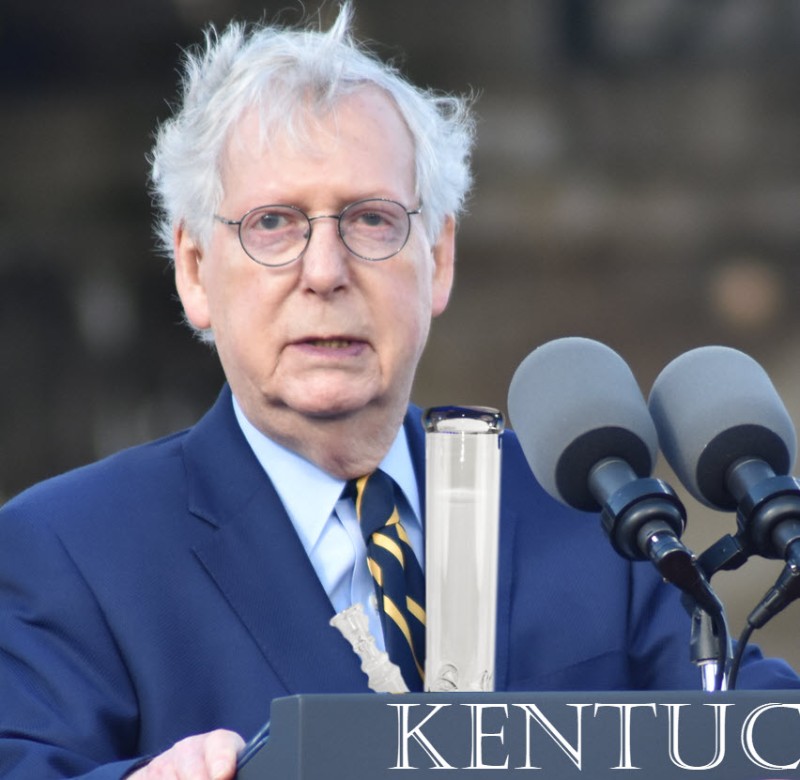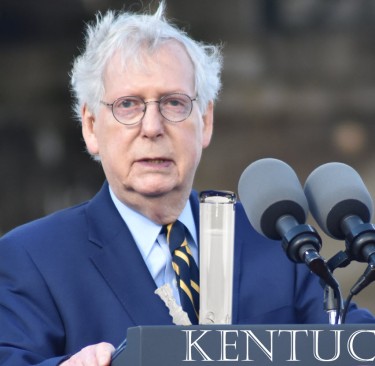In the act of legislative progress, the Kentucky House of Representatives has given the green light to a medical marijuana legalization bill previously passed by the Senate. The bill, proposed by Senator Stephen West (R), passed through the House Licensing, Occupations and Administrative Regulations Committee before receiving a vibrant 66-33 vote in favor of its passing. The governor's signature is the final step in its journey to becoming law.
The unwavering support of Governor Andy Beshear (D) has been instrumental in driving the push for reform, and he urged citizens to mobilize and persuade their state representatives to approve the bill earlier this week. With this monumental decision, Kentucky is poised to join the ranks of 37 other states in the U.S. that have implemented a thorough medical cannabis regulation.
A Cautious and Meticulous Approach
In anticipation of the House's crucial vote, Rep. Jason Nemes (R) - who has been the driving force behind medical marijuana legislation in the chamber for several sessions - emphasized that the proposed bill is notably more stringent than similar programs in other states. He highlighted that it strictly prohibits smoking and personal cultivation while requiring a genuine relationship between the patient and their healthcare provider.
According to Rep. Jason Nemes (R), lawmakers are taking a cautious and systematic approach to ensure the legislation is meticulously crafted and implemented. "We want to proceed cautiously and ensure we don't rush things. We aim to ensure that everything is in order as the administrative process unfolds," he stated. Meanwhile, Rep. Daniel Grossberg (D) supported the bill, saying that the opposition to medical marijuana legalization persists due to misguided notions and ignorance.
Despite concerns that medical marijuana legalization could exacerbate drug abuse or serve as a gateway drug, Rep. Daniel Grossberg (D) asserted that the evidence suggests otherwise. With over 30 states already legalizing medical marijuana, there has been a noticeable reduction in opioid use rather than an increase.
Moreover, Grossberg emphasized that legalizing medical marijuana could be a substantial economic boost for Kentucky, potentially generating tax revenue and creating employment opportunities within the burgeoning cannabis industry. Kentucky should seize the opportunity to be a leader in this field and not let it slip away.
Optimism abounded among advocates of the medical marijuana bill, especially given the House's prior efforts to introduce comparable measures in previous sessions, only for them to falter in the Senate. Yet, this year proved to be a departure from past patterns, with the Senate taking the reins and spearheading progress on medical cannabis legalization.
Details of S.B. 47
Individuals with cancer, epilepsy, severe pain, multiple sclerosis, chronic nausea, muscle spasms or spasticity, cyclical vomiting, PTSD, or any other qualifying medical condition, as determined by the Kentucky Center for Cannabis, may be eligible to use cannabis. Eligibility is guaranteed if they have a doctor or advanced nurse practitioner recommendation. Smoking cannabis would be prohibited under this bill, but patients could still access raw cannabis for vaporization.
Under the proposed bill, patients could not cultivate cannabis in their homes. Instead, they would be allowed to keep a 30-day supply of cannabis in their homes and a 10-day supply on their person. In addition, the bill stipulates that flower marijuana products should not contain more than 35% THC, while concentrates should not exceed 70% THC. As for edibles, a maximum THC concentration of 10 milligrams per serving. Notably, medical cannabis would also be excused from sales and excise taxes.
The program would be under the purview of the Cabinet for Health and Family Services, which would be responsible for establishing regulations and granting business licenses. License categories comprise three tiers: producers, cultivators, processors, dispensaries, and safety compliance facilities.
While local governments could choose not to permit cannabis businesses to operate, citizens would have the ability to petition to have their municipalities opt back in. A Board of Physicians and Advisors, comprising seven physicians and two advanced nurse practitioners, would be established to oversee the program. The regulations need to be finalized by January 1, 2024. Additionally, the State Board of Physicians and State Board of Nursing would permit practitioners to recommend cannabis.
The Politics Behind the Medical Cannabis Bill
Medical cannabis legalization bills have been introduced in the Kentucky House of Representatives in prior sessions but have failed to advance in the Senate. This is why advocates focused their efforts on the Senate this year. Senate Majority Floor Leader Damon Thayer (R) has been a major obstacle to the reform, consistently opposing comprehensive medical cannabis policy reform because it could expedite full recreational legalization. Delta-8 THC has already been banned at the state level in Kentucky, too.
Despite his previous opposition, Senate Majority Floor Leader Damon Thayer (R) has recently expressed a willingness to support the medical cannabis legalization bill. He said he would not obstruct the bill's progress if it had enough backing. In a recent committee vote, Thayer endorsed the bill, citing its "narrowly focused approach" as the reason for his change of heart. He also supported the bill on the Senate floor.
In his State of the Commonwealth address in January, Governor Beshear urged the legislature to legalize medical cannabis during this session, calling it a crucial reform to ensure that the state is "doing right by her people." This followed the governor's signing of two administrative directives in November, which permitted patients meeting specific criteria to possess a maximum of eight ounces of medical cannabis acquired legally from out-of-state dispensaries, and regulated the sale of delta-8 THC products.
Conclusion
Kentucky has joined the list of states in the U.S. that have legalized medical cannabis with the passage of a comprehensive medical cannabis law. The law permits patients with qualifying medical conditions to access cannabis with a recommendation from a physician or advanced nurse practitioner, but smoking is not allowed. Patients are also not allowed to cultivate cannabis at home.
The program will be overseen by the Cabinet for Health and Family Services, with the creation of a nine-member Board of Physicians and Advisors. While there have been previous attempts to legalize medical cannabis in Kentucky, the bill had stalled in the Senate. However, this year, the Senate took the lead in advancing the issue, and the bill ultimately passed both chambers. Legalizing medical cannabis is expected to create job opportunities and generate tax revenue for the state.








